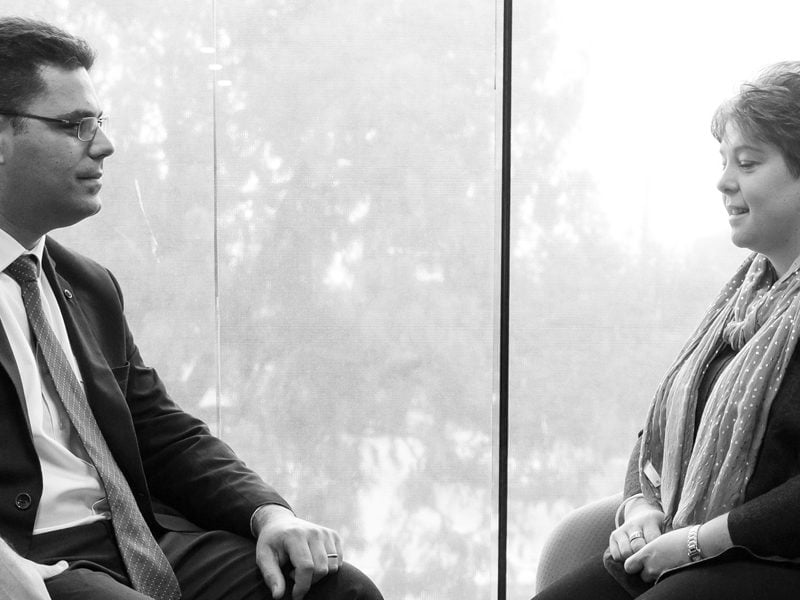

Divorce & Separation
Separation and divorce can be a tough time and we are here to help you make the right decisions for your family and your future.
A married couple can be a heterosexual or same sex couple.
A couple needs to separate before they can instigate divorce.
There is no legal process to become separated. The other person does not have to agree to the separation, however at least one of you need to believe that you would like the relationship to be over.
Being separated or divorced have similar effects. It creates an important division in your lives as it establishes financial rules and boundaries that you are required to live by.
Once you divorce, the marriage has formally ended.
What is separation?
Separation is the ending of a domestic relationship between two people, including marriages. One person may move out of home or you can be still living at home together but have separate lives.
You do not have to apply to the courts to separate. However, during separation, it is best to plan on how to proceed with the following:
- Parenting Arrangements if you have children under the age of 18
- Separating bank accounts and finances
- Division of marital assets and debts
- Telling organisations like Medicare, Centrelink and Child Support Agencies
- Telling family and friends
Seeking legal advice gives you confidence to make informed decisions regarding property or children’s arrangements, rather than having to automatically agree to an unfair proposal by the other party.
What should I consider when separating with children?
Separation does not end your involvement and responsibility as a parent. The Family Law Act 1975 aims to ensure children can enjoy a meaningful relationship with each parent, while being protected from harm.
The Family Court considers various factors to determine what is ‘in the best interest for the child’, rather than what is in the best interest for the parent.
Some factors courts consider in deciding what is in the best interests of children are:
- The children’s ages and maturity level.
- The relationship the children have with each parent, their siblings and extended family
- Children’s access to their cultural heritage and background
- Any family or domestic violence that may place children in harm’s way
- Parent’s attitudes towards their children and to their responsibilities as parents
For more information about custody and issues relating to children, please visit Parenting Arrangements.
What should I consider when there is property and finances involved?
You do not have to wait until you have divorced to divide property and finances. This process can begin once you are separated.
Property and finances include all assets and liabilities. Any asset and/or liability can be owned individually, jointly, by a family trust or family company.
This includes:
Assets:
- Property (family home and investment properties)
- Motor Vehicles
- Bank accounts
- Shares
- Superannuation
- Sole Trader Business, Partnership or Company
- Any other assets (ie: furniture or jewellery)
Liabilities:
- Mortgage
- Loans (ie: personal loan or card loan)
- Credit cards
- Personal debts
If you have signed a pre-nuptial agreement prior to the relationship, you can resolve property and financials according to the agreement.
For more information about your rights in property and financial issues, please visit Property Settlements.
How to obtain a divorce in Australia
A divorce is the legal ending of a marriage.
To obtain a divorce in Australia, you will need to demonstrate two items:
- You have been physically separated from your spouse for more than 12 months or prove you lived separate lives even though you lived in the same house after separation
- Your marriage has ‘irretrievably broken down’ so there is no likelihood of ever getting back together
Although the Application for Divorce paperwork is not unduly complicated, it needs to be prepared properly in accordance with the Court’s requirements. You, or your lawyer, may need to attend court if there are children under the age of 18. You also need to comply with requirements regarding serving divorce papers to your spouse.
Divorce and children
Ideally, parental arrangements are usually dealt with once you have separated.
When obtaining a divorce, if you have children under the age of 18 years of age, you or your ex partner would be required to attend the Family Court hearing to verify the children’s current circumstances.
If there are no children under the age of 18 involved in the separation, you generally do not need to attend the formal hearing and the divorce application can be processed accordingly.
Although proceeding with a divorce is not overly complicated, it still needs to be prepared properly in accordance with the requirements of the Family Court, otherwise the Family Court may reject the application.
How long does it take to get a divorce in Victoria?
The whole process takes approximately three months. This includes filing the application for divorce in court. Then, a hearing is conducted to officially hear and ideally grant the divorce. You will be notified of the divorce via orders.
Once your divorce is finalised, you are free to marry again. The person who is authorised to perform the marriage must actually sight the divorce order before they can marry you and your new partner.
To speak to one of our experienced Family Lawyers who can guide you through this difficult and emotional process of separation and divorce, please click here to contact us by phone or email.

Would you like to know more?
Contact our family law team on 1300 424 452 to receive personalised advice about your case.